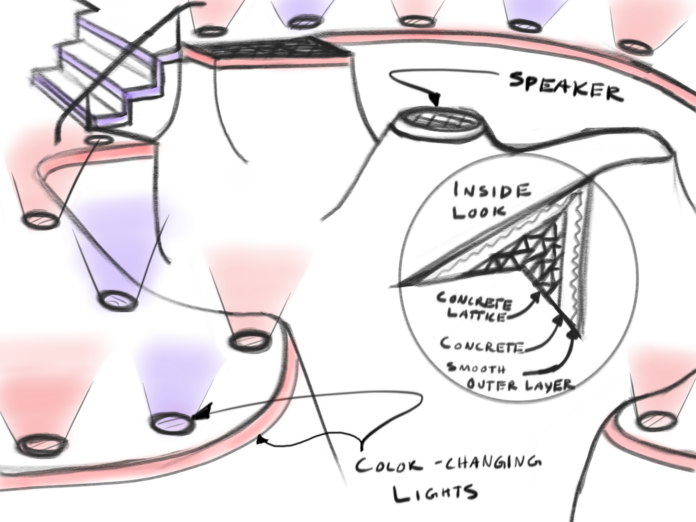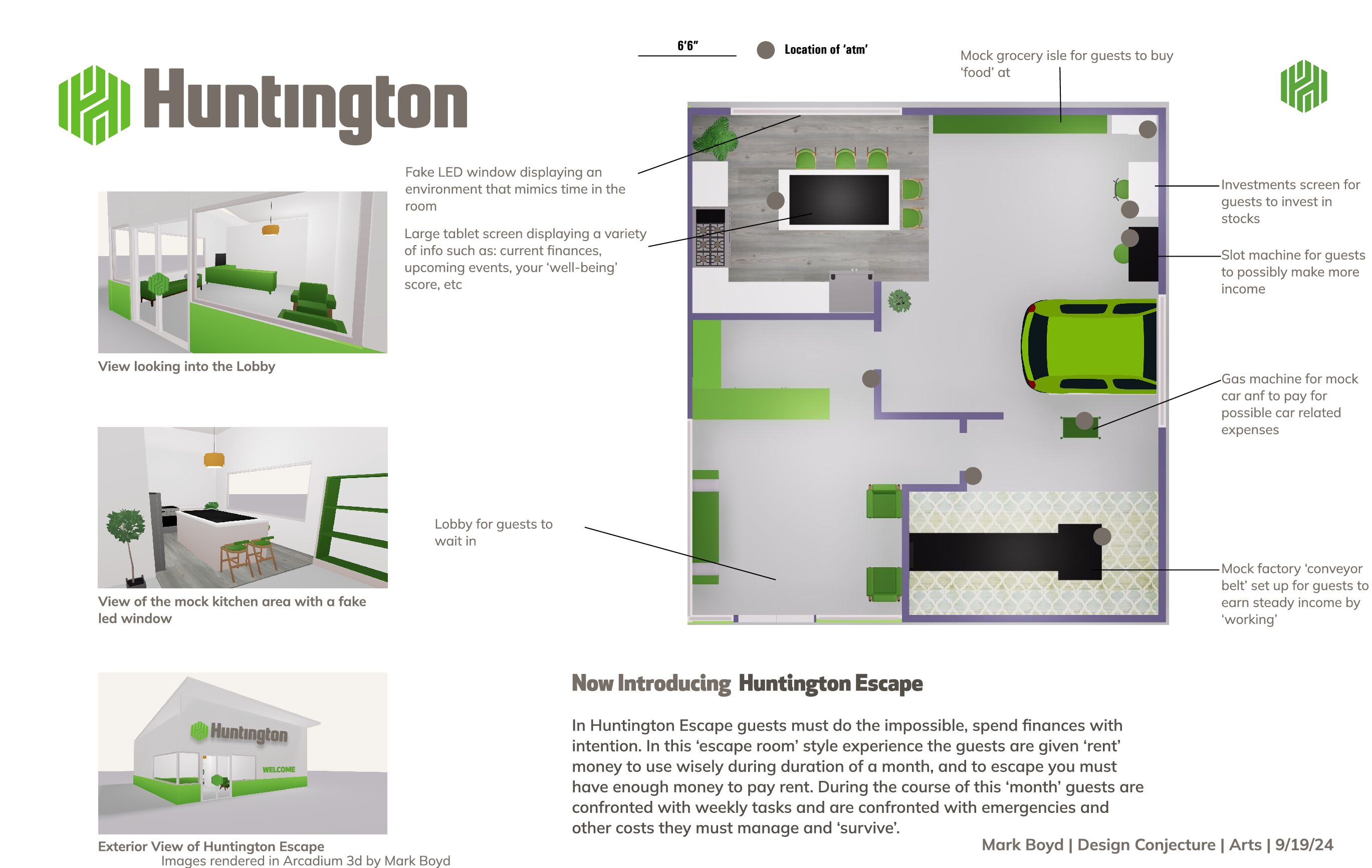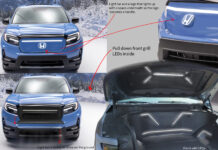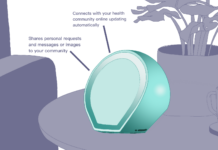From the literature I reviews for the Arts, I developed the following criteria for this design conjecture:
Uses mixed manufacturing processes
I took inspirations from Slicelabs intricate table. They used concrete and 3D printing, but the final result was the product of a 23-part mold. This got me thinking, “What options are available when you combine 3D construction printing with processes that supplement it’s weaknesses?” My conjecture uses this concept by having a material sprayed over the rough surface of the finished concrete to make it smooth for skating on.
Uses mixed materials, specifically electronic technology
This insight comes from both Jeff Koons’ Puppy and Ricardo Martínez’s light up scull. Koons’ giant living sculpture illustrated a fascinating marriage of materials: a living plant coat on an industrial understructure. This shows that the different materials can be used together to maximize the benefits of each one. Furthermore, Martínez’s skull featured colorful lights that caused me to wonder about the application of such features in an otherwise blank canvas of concrete. This design explores the idea of building lights and speakers into the concrete structure. Visitors could connect to speaker to play music and control the lights to make their own custom atmosphere.
Has some dynamic features:
Koons and Martínez also show off the potential of their chosen materials to be dynamic, changing the visual and physical experience of their art over time. Because concrete is a very static material by nature, I wanted to explore additions that could keep a printed structure interesting over time. With the lights and sounds installed in this skate park, a given visitors experience of the venue will never be the same twice.




